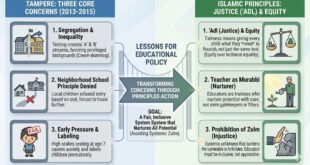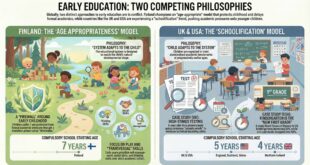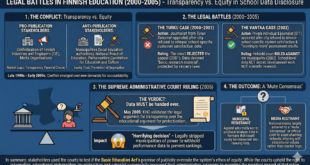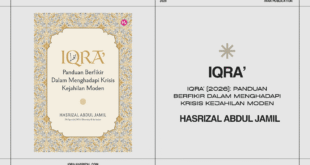
“Abi, I have to submit a proposal for my EE, the extended essay. I want to write something about education and psychology, and IB” kata Saif.
“What is it with the IB?” saya kehairanan.
“If IB is a good model for education, why can’t all schools just be the IB schools?” soal beliau.
Hurmm…
Macam-macam benda yang beliau nak masukkan ke dalam extended essay berkenaan.
“Well, my suggestion is… leave IB as an example to justify your argument. Don’t limit your discussion to IB” saya cuba memberi cadangan.
Untuk mengaitkan psikologi dengan pendidikan, cadangan saya ialah, lihat kembali kepada bagaimana perspektif yang berbeza-beza wujud mengenai pendidikan.
200 ke 300 tahun yang lalu, pendidikan tidak macam sekarang. Kerajaan tidak banyak terbabit. Pendidikan adalah antara individu dengan individu, atau institusi-institusi kecil. You decide what you want to learn, and from who.
“Habis tu, kenapa bertukar?” tanya si anak.
“Antaranya ialah kerana revolusi industri. What is it with industrial revolution? saya soal.
“Mass production?” jawab Saif, dalam bentuk soalan. Tidak pasti barangkali.
“Yes, itulah point utamanya!” saya mengesahkannya.
Dulu-dulu, orang tanam sayur untuk kegunaan sendiri. Apabila berlakunya revolusi industri, orang tanam sayur untuk bekalan negara. Jadi bila banyak benda nak dikerjakan pada skala besar, industri perlukan 100, 1000 atau sejuta orang yang boleh buat kerja. Untuk hasilkan pekerja begitu, pendidikan diselaraskan. Pendidikan jadi standardised.
Dan…
Negara yang menikmati pembangunan industri, menjadi kuasa ekonomi, bersaing, negara ada pesaing, dan ada musuh. Maka identiti negara semakin jelas, sempadan semakin jelas, maka rakyat kenalah setia kepada negara. Terutamanya nak berhadapan dengan musuh. Maka pada masa itu, pendidikan menjadi alat untuk memupuk kesetiaan kepada negara.
“That is why we have Negaraku at schools, Rukunegara, all these are parts of the national agenda, from the government, to shape us into a standardised group of citizens. Easier to control too! So, perceiving education like this is looking at education from the MACRO LEVEL!” saya juga mengait-ngaitkan macam-macam benda untuk menampakkan kepada Saif the big picture.
“So, where did the micro level come?” tanya Saif.
“Looking at education from the macro level, you guys are invisible to the leaders. They don’t see you as individuals. They see you as a bunch of people and how these people function in the society. They think more on the system, and how you people can fit into the system.
But when the value of democracy increased, the central power of the government declined, people started to realise about their individualism. They see themselves as individuals. Each of them has a voice, power to choose and their consciousness about themselves individually increased.
“Pada masa itu, orang sedar bahawa kita semua bukan satu jenis manusia. Setiap kita unik, dan sebenarnya pembelajaran itu berlaku di dalam individu. They are not actually happening in the school, or in the classroom, but in the individual’s self.” saya tegaskan.
“The brain.
The mind.
The emotion, motivation, cognition.
So, this is where psychology became more important. At macro level, people think of education using politics, sociology, economy and even military. But at micro level, people are more concern with how individuals interact with knowledge, info, other learners… and psychology explains more on this. That is where you will find the term interactionism. Including pedagogy. So, it is no longer just about what you learn, but also how it is taught and how it is studied by learners.” perbincangan berlanjutan antara kami.
“So, is IB micro or macro?” tanya Saif lagi.
Aduhai… Well… tidak mudah nak jawab… If you look at all the six principles of IB framework, it’s a combination of both micro and macro.” saya membuat andaian.
“Back to the original question, if IB is good, why don’t all schools just become IB Schools?” Saif masih kekal dengan soalan asalnya.
“You know, Saif… not everyone wants to think what they feel unnecessary. They are better at doing stuff. They are the hands on people. So, they just want to learn how to do work, work, make money and live a happy life, and even contribute to the society with that. I think this is also a reasonable option for our life. To these people, IB is just not for them!” saya cuba berkongsi pendapat.
“Is Finnish schools different from IB?” tanya Saif.
Berasap kepala.
Letih nak jawab.
“There are only 8 IB schools in Finland, and another few thousands all around the world. It is not easy to change the macro idea of education into the micro idea at national level. It’s difficult. But considering Finland is a small country with less than 6 million people, the curriculum since 2014 is becoming bit by bit similar to IB. But it takes time.” saya menggunakan sisa tenaga yang berbaki.
“Hurmmm… I think I am interested in education and psychology, like what you do” kata Saif.
“Well, I tell you one thing. What I learn, answers a lot of questions about life. But it doesn’t make money. At the age of 43 I am still a poor man” saya mahu Saif realistik.
Sebab dia sendiri pun pernah berkata yang dia mahu bekerja yang boleh menjadikan dirinya kaya.
“I think, it is more because of you not aiming for that!” simpul beliau.
Amboi!
HASRIZAL
Oulu Finland
 Saifulislam.Com Pendidikan Jalan Islah
Saifulislam.Com Pendidikan Jalan Islah




Salam. Ustaz Hasrizal tinggal di FInland ke? IB tu ape ustaz? dah lama saya tak ikut ustaz. Saif pun dah besar. Boleh berdialog dengan ustaz. Rakan bertukar pendapat. Seronok tengok.